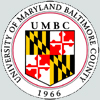| |||||||||||||||||||
Tips:  Range on the Protein: Protein ID Protein Position Domain Position: 
|
|---|
Weblogos are Copyright (c) 2002 Regents of the University of California
| DMDM_info@umbc.edu | 1000 Hilltop Circle, Baltimore, MD 21250 | Department of Biological Sciences | Phone: 410-455-2258 |




 Peptidase M14 Succinylglutamate desuccinylase (ASTE)/aspartoacylase (ASPA) subfamily. The Peptidase M14 Succinylglutamate desuccinylase (ASTE)/aspartoacylase (ASPA) subfamily belongs to the M14 family of metallocarboxypeptidases (MCPs), and includes ASTE, which catalyzes the fifth and last step in arginine catabolism by the arginine succinyltransferase pathway, and aspartoacylase (ASPA, also known as aminoacylase 2, and ACY-2; EC:3.5.1.15) which cleaves N-acetyl L-aspartic acid (NAA) into aspartate and acetate. NAA is abundant in the brain, and hydrolysis of NAA by ASPA may help maintain white matter. ASPA is an NAA scavenger in other tissues. Mutations in the gene encoding ASPA cause Canavan disease (CD), a fatal progressive neurodegenerative disorder involving dysmyelination and spongiform degeneration of white matter in children. This enzyme binds zinc which is necessary for activity. Measurement of elevated NAA levels in urine is used in the diagnosis of CD.
Peptidase M14 Succinylglutamate desuccinylase (ASTE)/aspartoacylase (ASPA) subfamily. The Peptidase M14 Succinylglutamate desuccinylase (ASTE)/aspartoacylase (ASPA) subfamily belongs to the M14 family of metallocarboxypeptidases (MCPs), and includes ASTE, which catalyzes the fifth and last step in arginine catabolism by the arginine succinyltransferase pathway, and aspartoacylase (ASPA, also known as aminoacylase 2, and ACY-2; EC:3.5.1.15) which cleaves N-acetyl L-aspartic acid (NAA) into aspartate and acetate. NAA is abundant in the brain, and hydrolysis of NAA by ASPA may help maintain white matter. ASPA is an NAA scavenger in other tissues. Mutations in the gene encoding ASPA cause Canavan disease (CD), a fatal progressive neurodegenerative disorder involving dysmyelination and spongiform degeneration of white matter in children. This enzyme binds zinc which is necessary for activity. Measurement of elevated NAA levels in urine is used in the diagnosis of CD. No pairwise interactions are available for this conserved domain.
No pairwise interactions are available for this conserved domain.
















